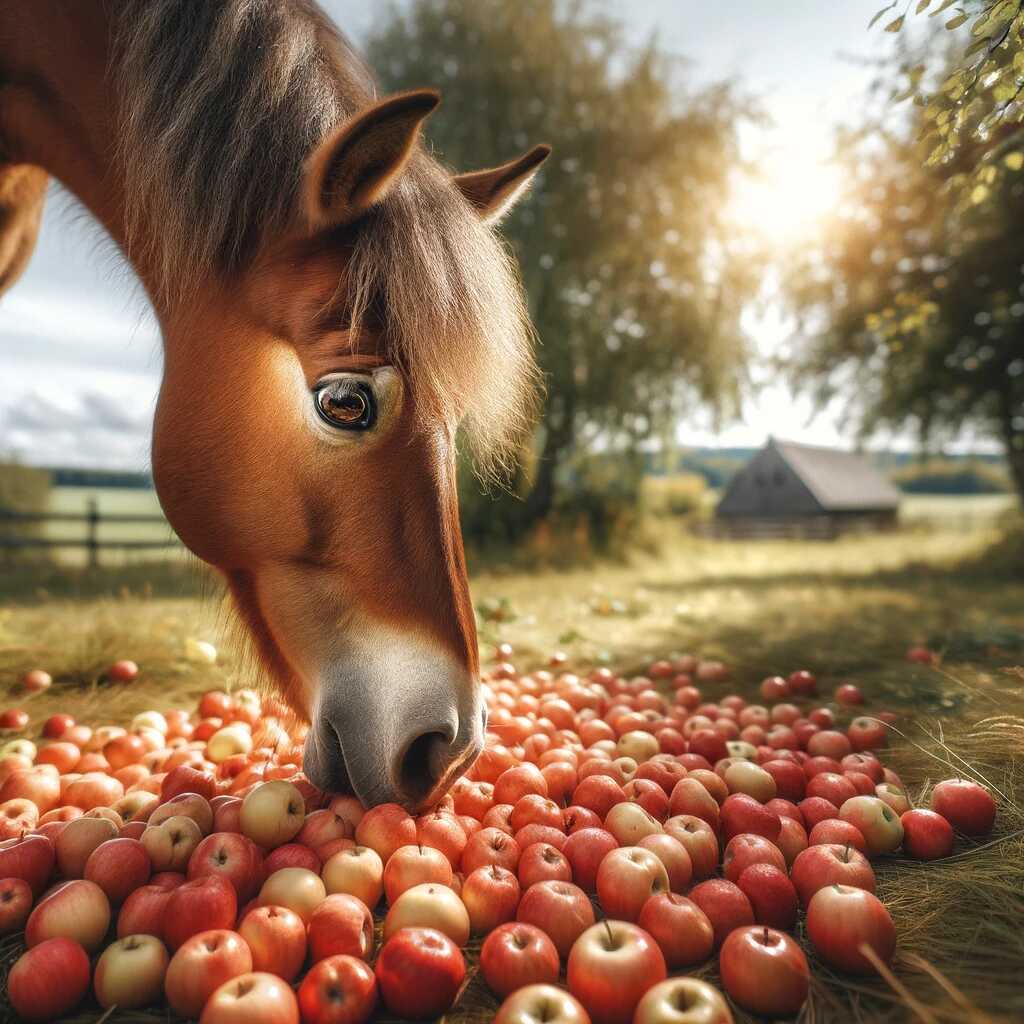Physical Address
304 North Cardinal St.
Dorchester Center, MA 02124
Physical Address
304 North Cardinal St.
Dorchester Center, MA 02124


Crab apples, known for their vibrant colors and tart flavor, are a common sight in many gardens and landscapes. While they are a delightful treat for humans, horse owners often wonder whether their equine companions can safely consume these small fruits. Can horses eat crab apples?
Crab apples may be dangerous for pets and animals, especially larger ones like horses and sheep who are more likely to consume them in high quantities. However, horses can eat crab apples in moderation if certain precautions are taken. It’s crucial to remove seeds and cores, cut them into small pieces to prevent choking, and closely monitor their intake.
Let’s explore the nutritional value of crab apples, potential risks, benefits, and offer expert insights on this intriguing topic.
Crab apples, scientifically known as Malus, are a group of apple tree species that produce small, often sour-tasting fruit. They are typically smaller in size compared to regular apples and come in a variety of colors, including red, yellow, and green. While humans occasionally use crab apples in culinary applications, they are not as popular for human consumption as their larger counterparts due to their tartness.
Before we can determine whether horses can eat crab apples, it’s essential to understand the nutritional composition of these fruits. Here are some key nutritional components found in crab apples:
Now that we have an understanding of the nutritional content of crab apples, let’s explore whether horses can safely eat them.
Horses can indeed eat crab apples in moderation. However, there are some important considerations to keep in mind:
Feeding crab apples to horses in moderation can have some potential benefits:
While crab apples can be a tasty and nutritious treat for horses, there are also risks associated with feeding them:
To provide a more comprehensive view on whether horses can eat crab apples, we turned to expert opinions and existing studies on the topic.
Veterinarians and equine nutritionists generally agree that small amounts of crab apples can be included in a horse’s diet as an occasional treat. They emphasize the importance of moderation and caution against overfeeding. Removing seeds and cores is a widely recommended practice to minimize any potential risks associated with cyanide content.
While there isn’t an abundance of studies specifically addressing crab apples in horses, there is research on apple seeds’ cyanide content. One study published in the “Journal of Toxicology and Environmental Health” examined the cyanide content of apple seeds and their potential toxicity. The study found that while apple seeds do contain cyanide compounds, the amount of cyanide released when ingested is generally low and unlikely to be lethal in small quantities.
However, it’s important to note that individual horses may react differently to apple seeds, and some may be more sensitive to cyanide than others. This further underscores the importance of removing seeds and cores when offering crab apples to horses.
If you decide to offer crab apples to your horse, here are some guidelines to ensure their safety and enjoyment:
In conclusion, horses can safely eat crab apples in moderation, provided certain precautions are taken. Crab apples offer some nutritional benefits, including fiber, vitamins, and minerals, but it’s crucial to be mindful of the potential risks associated with overfeeding, cyanide content, and sugar intake.
Always prioritize your horse’s well-being by inspecting crab apples for freshness, removing seeds and cores, and cutting them into small, manageable pieces. Additionally, monitor your horse’s reaction to this treat and consult with a veterinarian if you have concerns or if your horse has specific dietary restrictions.
While studies on crab apples specifically are limited, existing research on apple seeds suggests that the cyanide content in small quantities is unlikely to be lethal. However, individual horses may have varying sensitivities, reinforcing the importance of caution and moderation in treating your equine companion to these delicious fruits.
In summary, a few carefully prepared crab apples can be a delightful and nutritious addition to your horse’s diet, enhancing their diet variety and providing them with an occasional treat that they can enjoy safely.